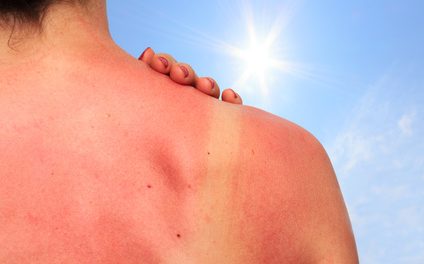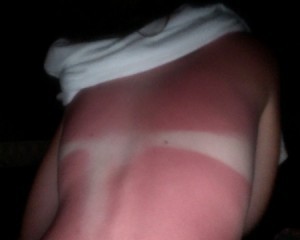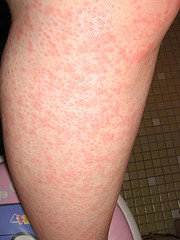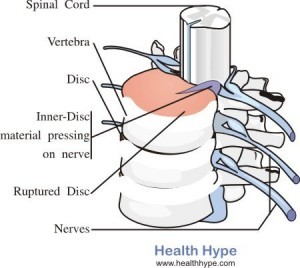Burning Skin Sensation (Feeling) Causes With or Without Rash
Human skin perceives a number of different sensations that can serve as warning signals of tissue damage or potential injury. Pain, burning and itching are the main sensations that tell us to take action by either removing the offending agent or moving away from it as soon as possible.
However, sometimes these sensations can emanate from the skin for no clearly identifiable reason. A burning sensation or burning pain may be a symptom of some underlying disease, an injury that is not obvious, allergies, drug reactions, poisoning and nerve disease.
Burning Pain Sensation On The Skin
Inflammation is the body’s way of preventing tissue damage. It is a short-lived mechanism that is marked by pain, swelling, heat and redness. Inflammation does not only occur in the skin. It can occur anywhere on or in the body. These physiological effects are caused by the release of inflammatory chemicals at the affected area.
It causes the blood vessels in the area to dilate, allows fluid to seep into the tissue spaces and stimulates the pain receptors (nociceptors) in the vicinity. These pain receptor elicit signals are sent back to the brain. A burning pain on the skin is largely due to the way these nociceptors are stimulated.
Similarly there are thermoreceptors in the skin which are able to detect temperature. It allows us to detect cold and hot. These receptors may also be stimulated and relay signals, along with pain signals, to the central nervous system when there is inflammation in a part of the body.
However, there are instances when pain is not elicited at the receptor level but rather from abnormalities in the nerve fibers that carry these signals or in the parts of the brain that perceives pain. It is important to note that apart from pain and a burning sensation, there may also be itching and other sensations like tingling.

Causes of Burning Skin Sensation
There are various different causes of skin irritation that can lead to a burning sensation. It can affect any person who is exposed to certain conditions. However, some people may experience a burning skin sensation due to underlying skin disease or allergic states that is not widespread. Thermal, chemical and mechanical burns will naturally lead to a burning sensation. However, the focus is on other skin conditions that may cause a burning feeling.
Trauma
Any physical or chemical trauma to the skin can cause a burning sensation even if there is no pain. This can include:
- Blunt force impact
- Sharp injury
- Heat (burns)
- Ice
- Chemical burn
- Insect bite or sting
- Strong sunlight (sunburn)
- Radiation
The cause of the trauma is usually obvious. Typically there will be redness, swelling and heat over the affected area that is characteristic of inflammation.
Picture of sunburn
Allergy
An allergy can also trigger a burning sensation when the skin comes into contact with the allergen. Itching is a common symptom along with some skin rash. However, the burning is an indicator of where contact with the allergen was made like in allergic contact dermatitis. Sometimes the cause may be obvious like with a latex allergy but at other times the allergen may not be as easy to identify.
People with atopic dermatitis or other allergic conditions may experience skin symptoms even if the allergen has not made contact with the skin at the specific area where the burning is felt. Apart from localized skin reactions, a burning sensation may also occur with anaphylaxis. Urticaria (hives) is similar to other allergic skin diseases although the exact trigger is not always clear.
Picture of urticaria (hives)
Plants (Herbs)
The chemicals in some plants can cause burning when it comes into contact with the skin. Stinging nettles and poison ivy are some examples of plants that cause this localized skin reaction. Itching, welts, swelling and redness are other symptoms that may also be present.
Capsaicin that is extracted from chili peppers are used in certain creams for easing pain and even itching in skin diseases in psoriasis. But undiluted capsaicin or concentrated forms can cause a burning sensation on the skin. Mustard oil is another known problem plant-based item that can cause skin burning if not properly diluted.
Other Substances
A host of different substances can trigger skin inflammation. Some of these substances are obvious toxins, like chlorine or strong acids and alkalis. Other substances can cause irritation of the skin and lead to inflammation. This is known as irritant contact dermatitis. This is not an allergic inflammatory reaction as is the case with allergic contact dermatitis and even innocuous substance like water and sweat can irritate the skin.
Skin Diseases
A burning sensation of the skin can occur with most skin diseases. This includes skin conditions where itching is usually the main sensation, such as contact dermatitis, atopic dermatitis (eczema), urticaria and psoriasis. Sometimes this burning sensation arises secondary to the itching, as a result of scratching vigorously which causes micro-tears in the skin.
The burning is therefore not part of the presentation of the skin disease but arises as a complication of skin damage due to scratching. It may also arise with a secondary bacterial infection of the damaged or diseased area of the skin which also often presents with pustules and oozing discharge. This may lead to impetigo or cellulitis.
Cutaneous Decompression Sickness
Skin bends, also known as cutaneous decompression sickness, is a condition where the skin becomes red, has a burning sensation, itches, may swell and develops a marbled appearance. It is similar to the bends in that the gases dissolved in the blood form bubbles within the body.
The skin capillaries are one site where these bubbles tend to deposit. Skin bends are not a common occurrence and may not always require treatment but should be considered as a possible cause of burning skin after diving. It should also be remembered that certain aquatic animals may also have toxic stings or bites that could also be a cause.
Drugs and Toxins
There are a number of different drugs and poisons that can cause a burning sensation of the skin, without or without other symptoms. Dermatitis medicamentosa is a term for the range of skin rashes and symptoms that arise with using certain pharmaceutical drugs. It is also known as drug eruptions. These skin drug reactions may not always be due to specific medication but individual sensitivity is a factor.
Illicit street drugs may also cause a burning sensation of the skin for a number of reasons, including irritation of the receptors and nerves, disturbances of the brain chemistry and sensations, and the effects of toxins in these drugs. Poisoning may be intentional or accidental and there are a number of toxins that can cause a burning skin sensation. These toxins may be naturally occurring in certain plants and animals or synthetic. A burning skin sensation is frequently seen with arsenic poisoning, one of the substances widely used in intentional poisoning.
Peripheral Neuropathy
Any damage, irritation or disease of the nerves can elicit a burning sensation on the skin. The term for these different nerve disorders is neuropathy and when it affects the nerves outside of the brain and spinal cord it is known as peripheral neuropathy. It can occur for a number of different reasons, including inflammation (traumatic and non-traumatic), infection, metabolic, toxic or hereditary factors and due to nerve tumors.
Two common causes include a pinched nerve where there is compression of the nerve root emanating from the spinal cord, and diabetic neuropathy which is nerve damage from long standing diabetes. A burning sensation may also be accompanied by tingling, prickling and numbness when the sensory nerve fibers are only affected, or there may also be accompanying muscle weakness or paralysis if mixed fibers or motor fibers are involved.
References:
- Decompression sickness. Medscape
- Sensitive skin. Dermnet NZ
Last updated on August 13, 2018.







